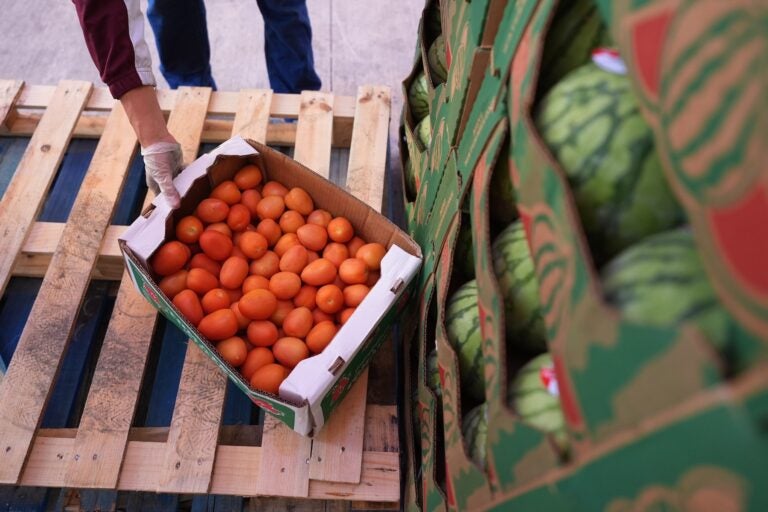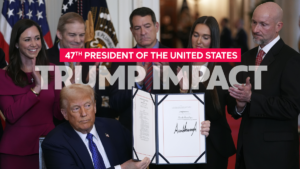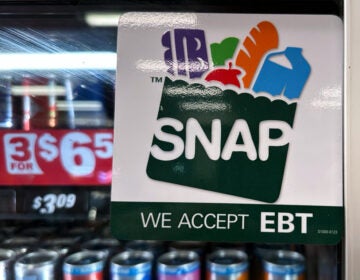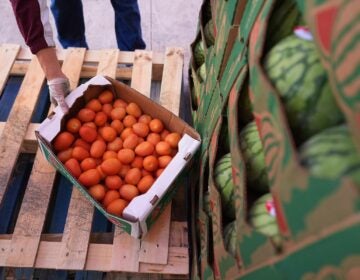Trump administration seeks to halt SNAP food aid payments after a court order
The court wrangling prolonged weeks of uncertainty for the food program that serves about 1 in 8 Americans, mostly with lower incomes.

A volunteer reaches for a box of tomatoes during a food distribution at the San Antonio Food Ban for SNAP recipients and other households affected by the federal shutdown, Thursday, Nov. 6, 2025, in San Antonio. (AP Photo/Eric Gay)
President Donald Trump’s administration asked a federal appeals court Friday to block a judge’s order that it distribute November’s full monthly SNAP food benefits amid a U.S. government shutdown, even as at least some states said they were moving quickly to get the money to people.
The judge gave the Trump administration until Friday to make the payments through the Supplemental Nutrition Assistance Program. But the administration asked the appeals court to suspend any court orders requiring it to spend more money than is available in a contingency fund, and instead allow it to continue with planned partial SNAP payments for the month.
The court filing came even as Wisconsin said Friday that some SNAP recipients in the state already got their full November payments overnight on Thursday.
“We’ve received confirmation that payments went through, including members reporting they can now see their balances,” said Britt Cudaback, a spokesperson for Democratic Gov. Tony Evers.
Uncertainty remains for many SNAP recipients
The court wrangling prolonged weeks of uncertainty for the food program that serves about 1 in 8 Americans, mostly with lower incomes.
An individual can receive a monthly maximum food benefit of nearly $300 and a family of four up to nearly $1,000, although many receive less than that under a formula that takes into consideration their income. For many SNAP participants, it remains unclear exactly how much they will receive this month, and when they will receive it.
Because of the federal government shutdown, the Trump administration originally had said that SNAP benefits would not be available in November. However, two judges ruled last week that the administration could not skip November’s benefits entirely because of the shutdown. One of those judges was U.S. District Judge John J. McConnell Jr., who ordered the full payments Thursday.
In both cases, the judges ordered the government to use one emergency reserve fund containing more than $4.6 billion to pay for SNAP for November but gave it leeway to tap other money to make the full payments, which cost between $8.5 billion and $9 billion each month.
On Monday, the administration said it would not use additional money, saying it was up to Congress to appropriate the funds for the program and that the other money was needed to shore up other child hunger programs.
Thursday’s federal court order rejected the Trump administration’s decision to cover only 65% of the maximum monthly benefit, a decision that could have left some recipients getting nothing for this month.
In its court filing Friday, Trump’s administration contended that Thursday’s directive to fund full SNAP benefits runs afoul of the U.S. Constitution.
“This unprecedented injunction makes a mockery of the separation of powers. Courts hold neither the power to appropriate nor the power to spend,” the U.S. Department of Justice wrote in its request to the court.
States are taking different approaches to food aid
Some states said they stood ready to distribute SNAP money as quickly as possible.
The Michigan Department of Health and Human Services said it directed a vendor servicing its SNAP electronic benefit cards to issue full SNAP benefits soon after the federal funding is received.
Benefits are provided to individuals on different days of the month. Those who normally receive benefits on the third, fifth or seventh of the month should receive their full SNAP allotment within 48 hours of funds becoming available, the Michigan agency said, and others should receive their full benefits on their regularly scheduled dates.
Meanwhile, North Carolina’s Department of Health and Human Services said that partial SNAP benefits were distributed Friday, based on the Trump administration’s previous decision. Officials in Illinois and North Dakota also said they were distributing partial November payments, starting as soon as Friday for some recipients.
In Missouri, where officials had been working on partial distribution, the latest court jostling raised new questions. A spokesperson for the state Department of Social Services said Friday that it is awaiting further guidance about how to proceed from the U.S. Department of Agriculture, which administers SNAP.
On Thursday, Nebraska Gov. Jim Pillen had downplayed the impact of paused SNAP benefits on families in his state, saying, “Nobody’s going to go hungry.”
Pillen, a Republican and multimillionaire, said food pantries, churches and other charitable services will fill in the gap for SNAP recipients.
“We’re going to do what we used to do,” Pillen said. “I’m long enough in the tooth where we took care of our neighbors before government got into this business. We knew who needed help. We helped each other.”
___
Lieb reported from Jefferson City, Missouri, and Bauer from Madison, Wisconsin. Associated Press writers Margery Beck in Omaha, Nebraska; Jack Dura in Bismarck, North Dakota; John O’Connor, in Springfield, Illinois; and Gary D. Robertson in Raleigh, North Carolina, contributed to this report.
WHYY is your source for fact-based, in-depth journalism and information. As a nonprofit organization, we rely on financial support from readers like you. Please give today.






